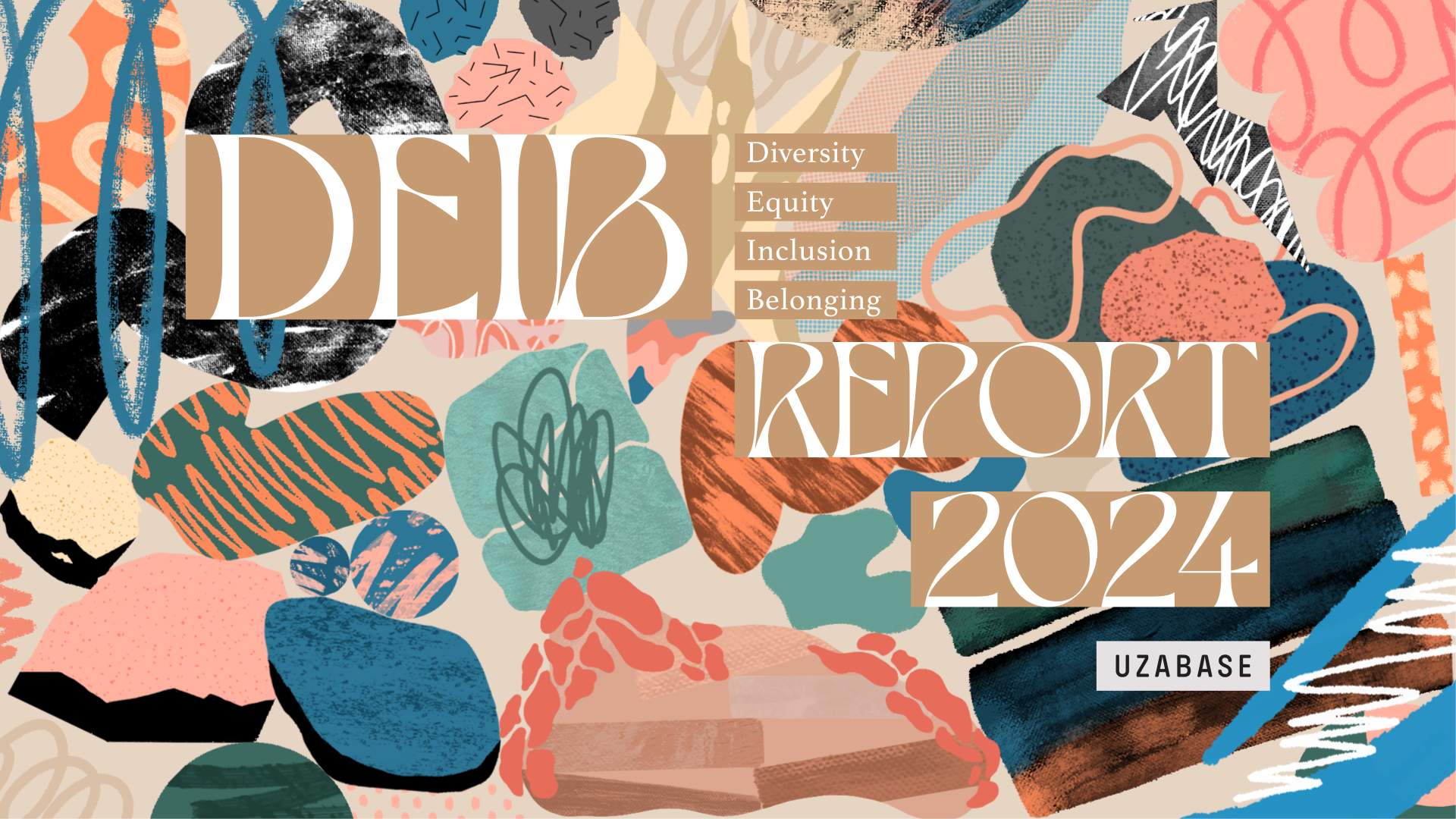Uzabase is home to a wide range of occupations, nationalities, and genders. It is this diversity that allows us to take on new challenges and engage in innovation that would be impossible to do alone.(Data here represents employees of both domestic and international operations as of 31 December 2024 (for historical data, as of 31 December of each respective year), unless otherwise noted.)
Employee Gender Distribution
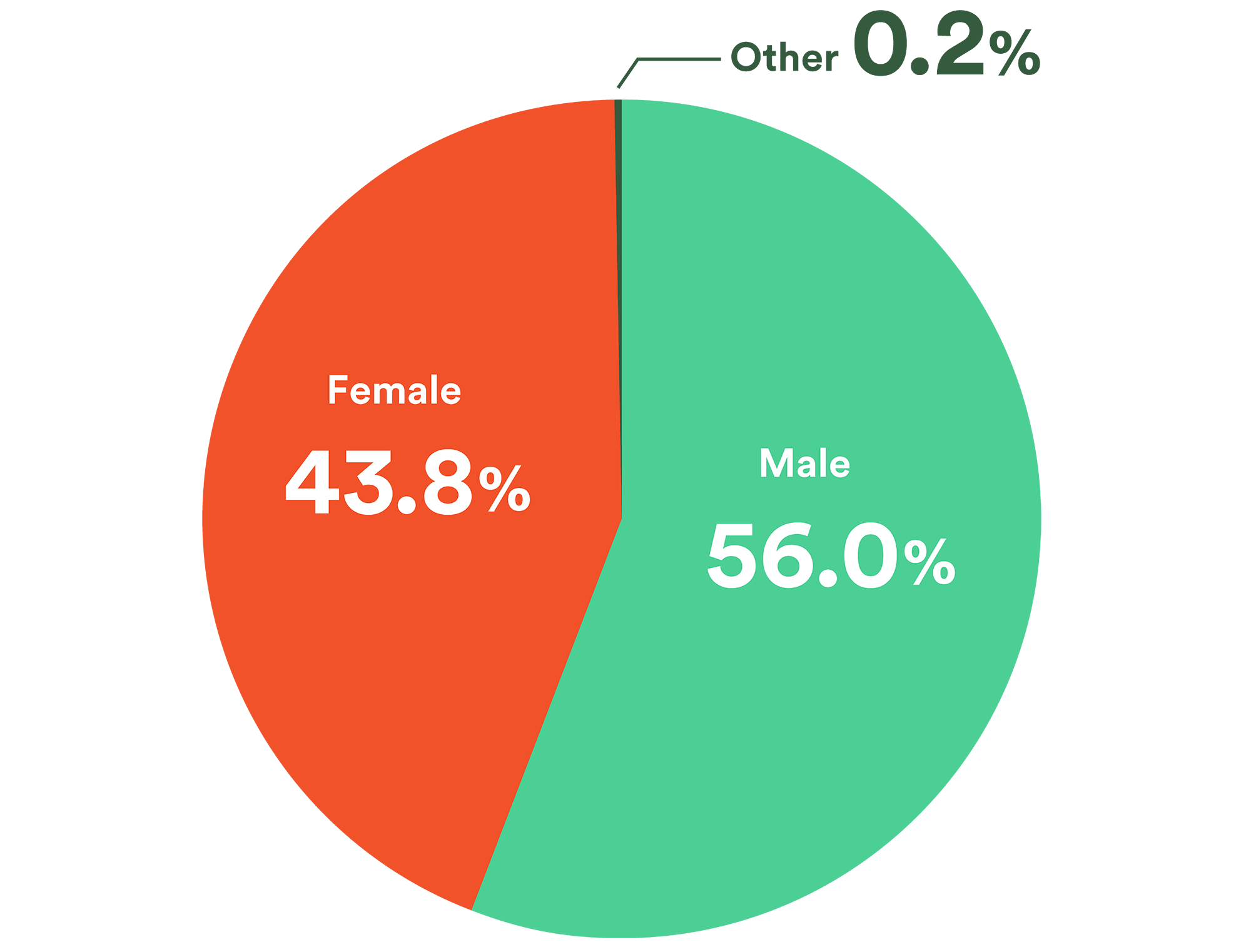
Gender Distrubution: Women in Management

Employee Distribution by Profession
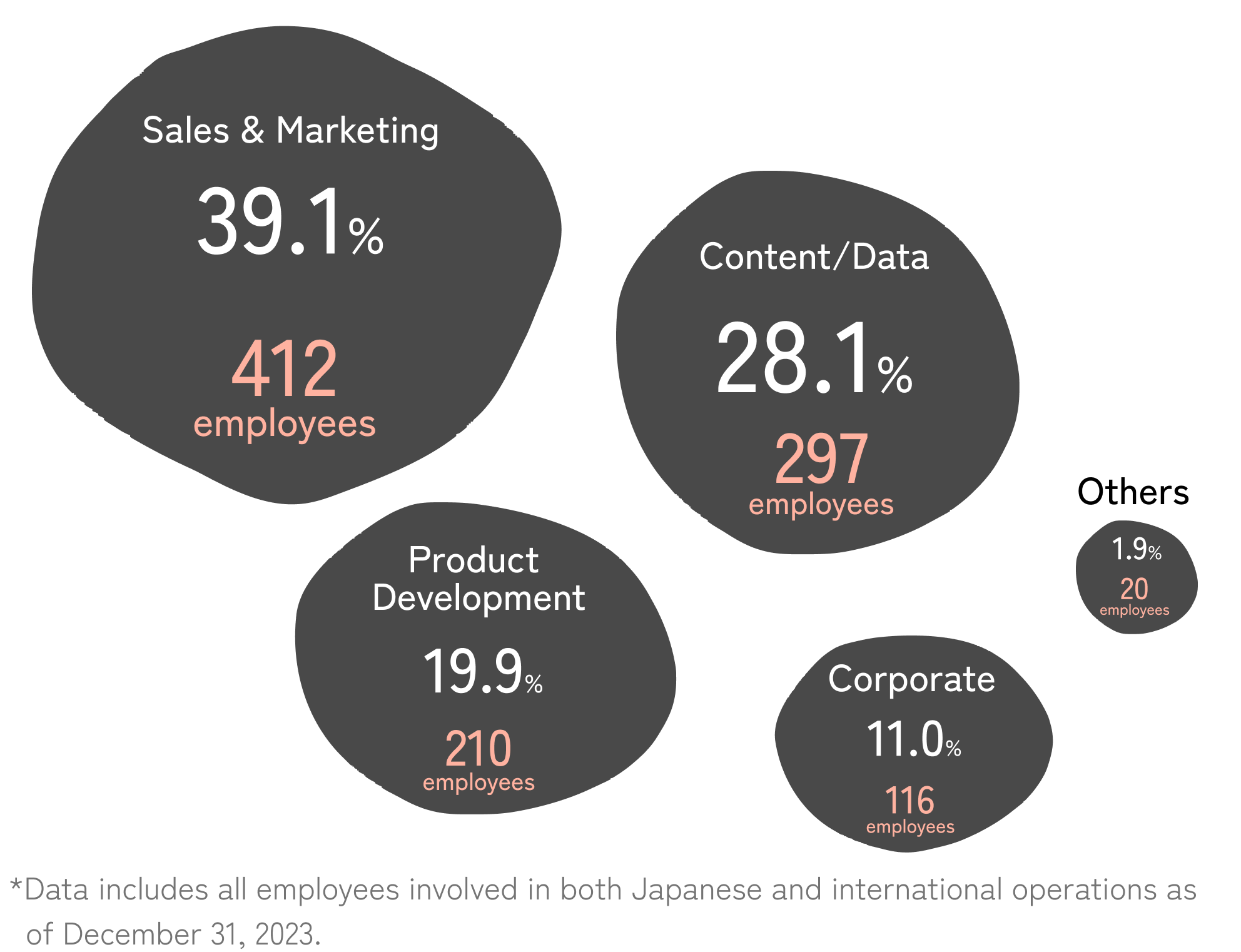
Fresh Graduates vs. Mid-Career Hires
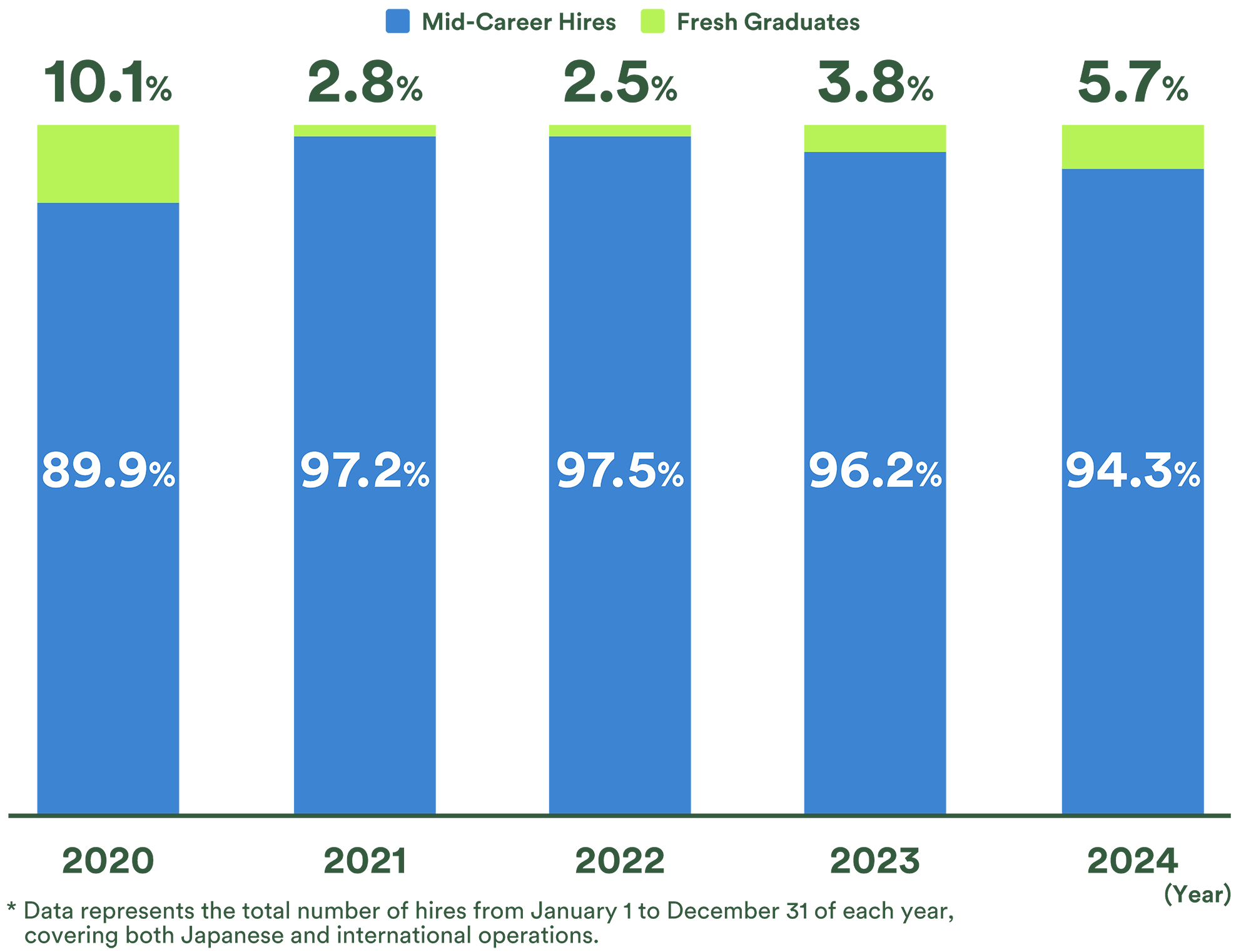
Employee Distribution by Age Group
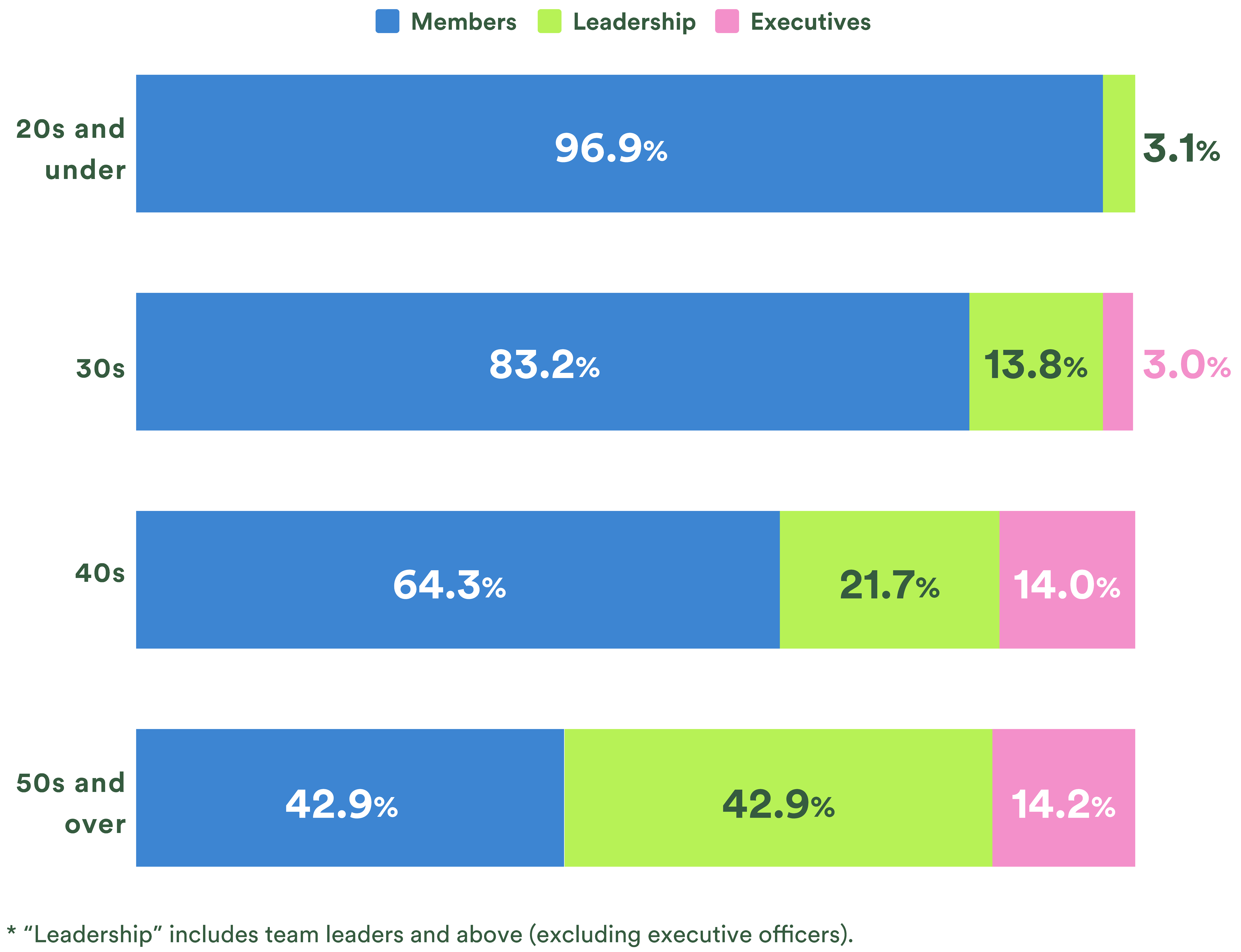
Share of Non-Japanese Employees
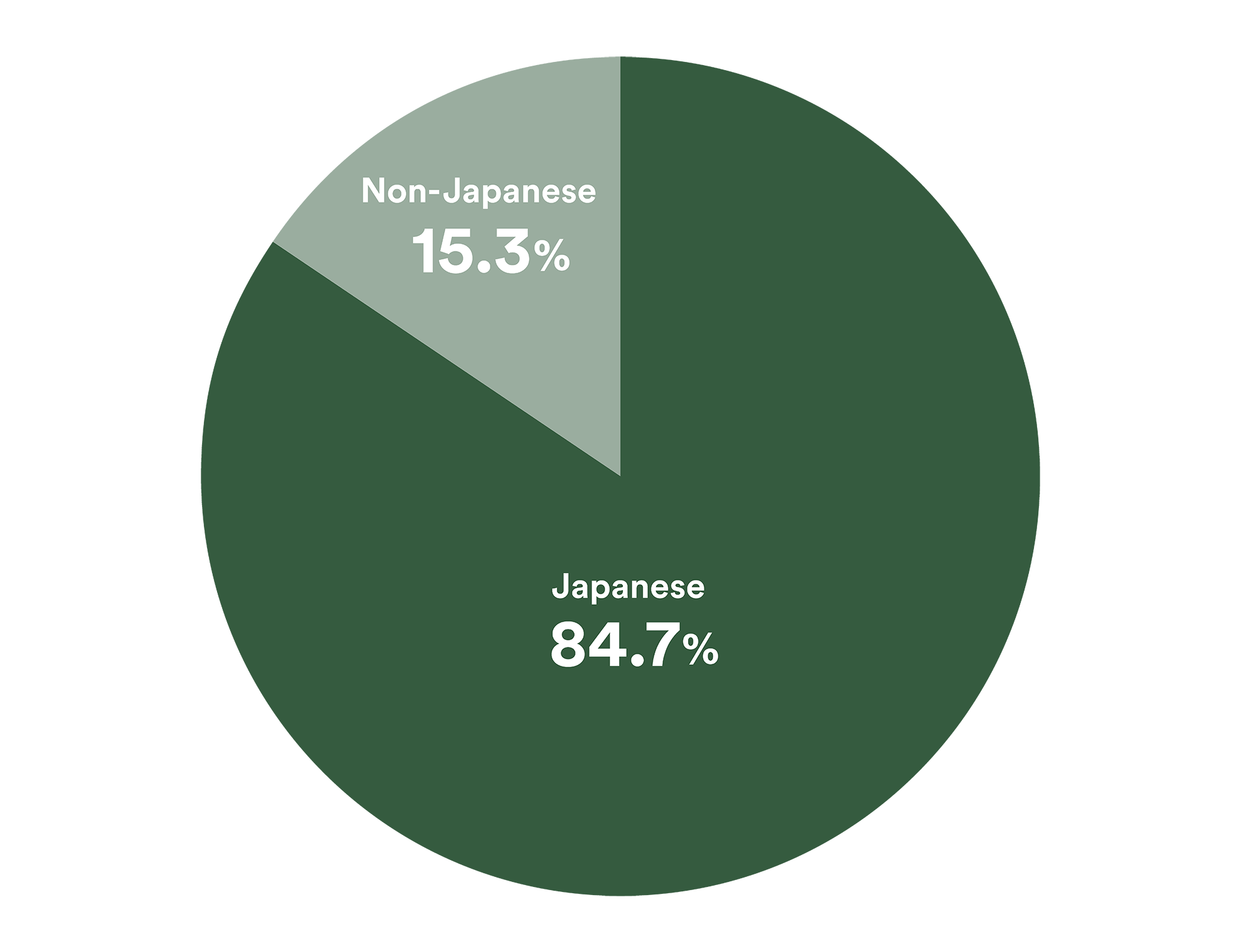
Distinctive personnel system that realizes "We need what you bring"
In order to realize our purpose, a "diverse team" of various personalities and talents is necessary, and in order for this diverse team to coexist while respecting each other, a "diverse way of working" is required.
Uzabase makes this way of working possible by upholding and sharing the value of "Be free & own it".
By respecting the freedom of each member's lifestyle, including that of their family and partner, and by having each member work happily, they can focus on their work, fulfill their responsibilities, and maximize their performance.
Freedom of Work Place and Time
Members have autonomy in determining their work time and place in order to maximize team performance.Secure excellent human resources with various employment statuses and commitment levels (internal and external sideline system)
High ratio of working parents. 100% return from maternity leave for both men and women.
Specific internal initiatives
At Uzabase, we have been working to ensure the inclusion and psychological safety of all our employees.
Working style and benefits
Super flex system
Parental leave
Shortened working hours
Cross-cultural training
Employee Assistance Program (EAP)
Sick child care subsidy and nursing care allowance systems
Same-sex partnership system and recognition of same-sex and de facto marriages
Employee resource groups such as Career Juggling (working parents) and LGBTQ+
Fertility treatment consultation services and seminars
Parental leave mentoring
Recruitment and career
Leader training (new leader training, female leader development and coaching training)
Mentoring system
Incentives for qualification acquisition
Internal and external side job system
Diversability enhancement and onboarding
Internal and external side job system
Harassment training
DEIB training for leaders
Language
Simultaneous interpretation for company-wide meetings
Current DEIB Challenges
Among the four categories outlined in Uzabaseʼs 2021 D&I Commitment, we believe we have made meaningful progress and achieved our goals in the following areas through consistent initiatives over the past few years:
1. Ensure information transparency
4. Set up a DEIB Committee and disclose DEIB-related metrics and policies on an ongoing basis
However, despite progress being made, challenges remain in the following two areas:
2. Reduce the gender disparity among regular employees and leaders
3. Help people to overcome hurdles arising from structural issues in society
To address these ongoing challenges, we have redefined our current DEIB priorities into two key focus areas and articulated corresponding commitments for each.
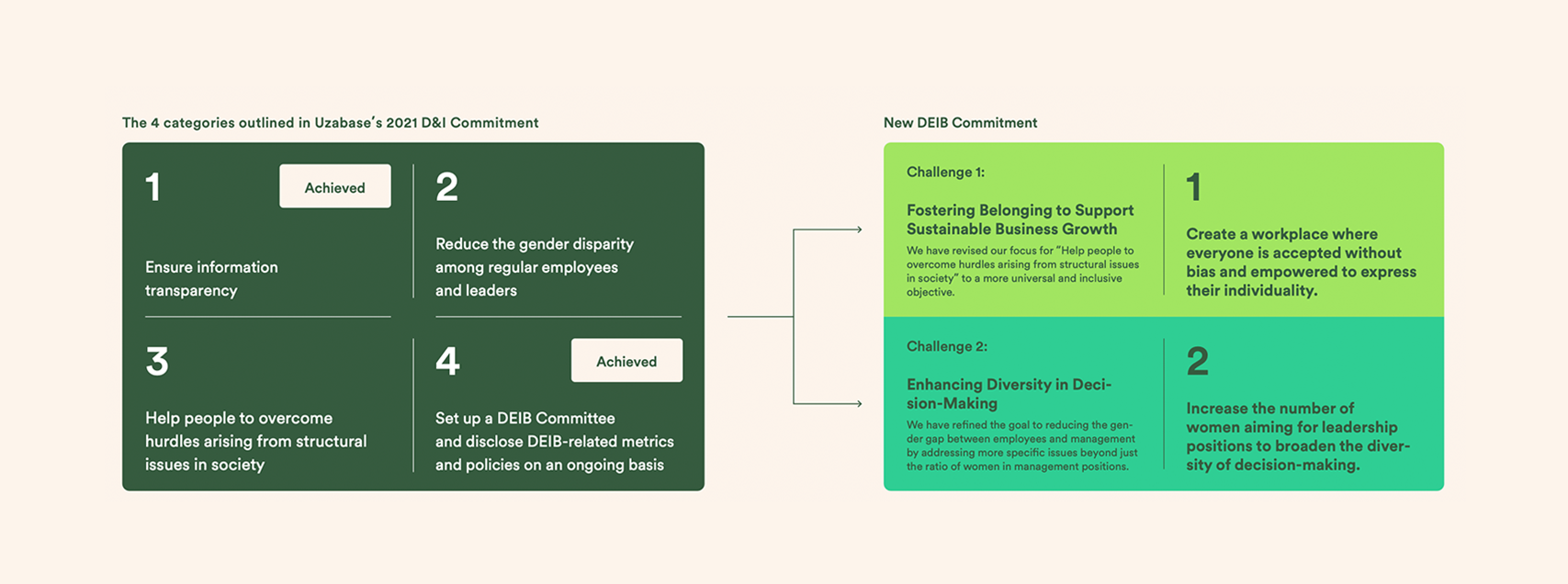
Our DEIB Commitment
When diverse abilities intersect, it becomes possible to resolve many user pain points and create services and systems that unleash the highest levels of creativity. This, in turn, will help drive Uzabaseʼs business growth and bring us closer to realizing our purpose. Under the value of “we need what you bring”, we are accelerating the promotion of DEIB by setting the following commitments, with a target year of 2027.
1. Create a workplace where everyone is accepted without bias and empowered to express their individuality
By fostering a sense of Belonging*, we aim to foster an environment where all members are accepted without bias, allowing them to fully leverage their unique traits and strengths. This, in turn, will contribute to the sustainable growth of our business.
*At its core, it's a feeling of "I belong here." It's knowing your skills and experiences are valued, building trust with teammates and colleagues over time, and feeling secure enough to embrace your imperfections.
To achieve this commitment, we have outlined the following specific action plans:
- Increase internal “connectedness” (to strengthen relationships among members)
- Conduct DEIB training (to develop communication skills rooted in empathy and a deep understanding of diversity)
- Conduct StrengthsFinder® training (to promote self-awareness and mutual understanding)
- Create a DEIB Encyclopedia (to visualize the spectrum of diversity and establish a shared vocabulary around DEIB)
2. Increase the number of women aiming for leadership positions to broaden the diversity of decision-making
Currently, women hold 31.7% of managerial positions (i.e., team leader level and above), and the gap compared to the overall female employee ratio (43.8%) is gradually narrowing. However, a significant gender pay gap remains. One major contributing factor is the low representation of women at or above the title of P/L6(*1) positions responsible for key decision-making. While 25.8% of male employees are in these senior roles, the figure for female employees is only 8.6%, indicating a substantial disparity. This gap is influenced not only by gender inequality but also by differences in hiring practices across job functions. In response, the DEIB Committee will first focus on increasing the proportion of women who aspire to senior roles(*2) and will support those aiming to advance into higher job grades.
*1 Members at or above the P/L6 level are entrusted by executive officers with business challenges and are capable of envisioning solutions, devising strategies, and executing them.
*2 “Senior roles” refers to positions at or above the P/L6 level.
To support this goal, the following action plans have been set:
- Increase and support members with aspirations for senior positions (to cultivate a diverse group of decision-makers)
- Provide early training for female managers (to address challenges unique to women's career development)
